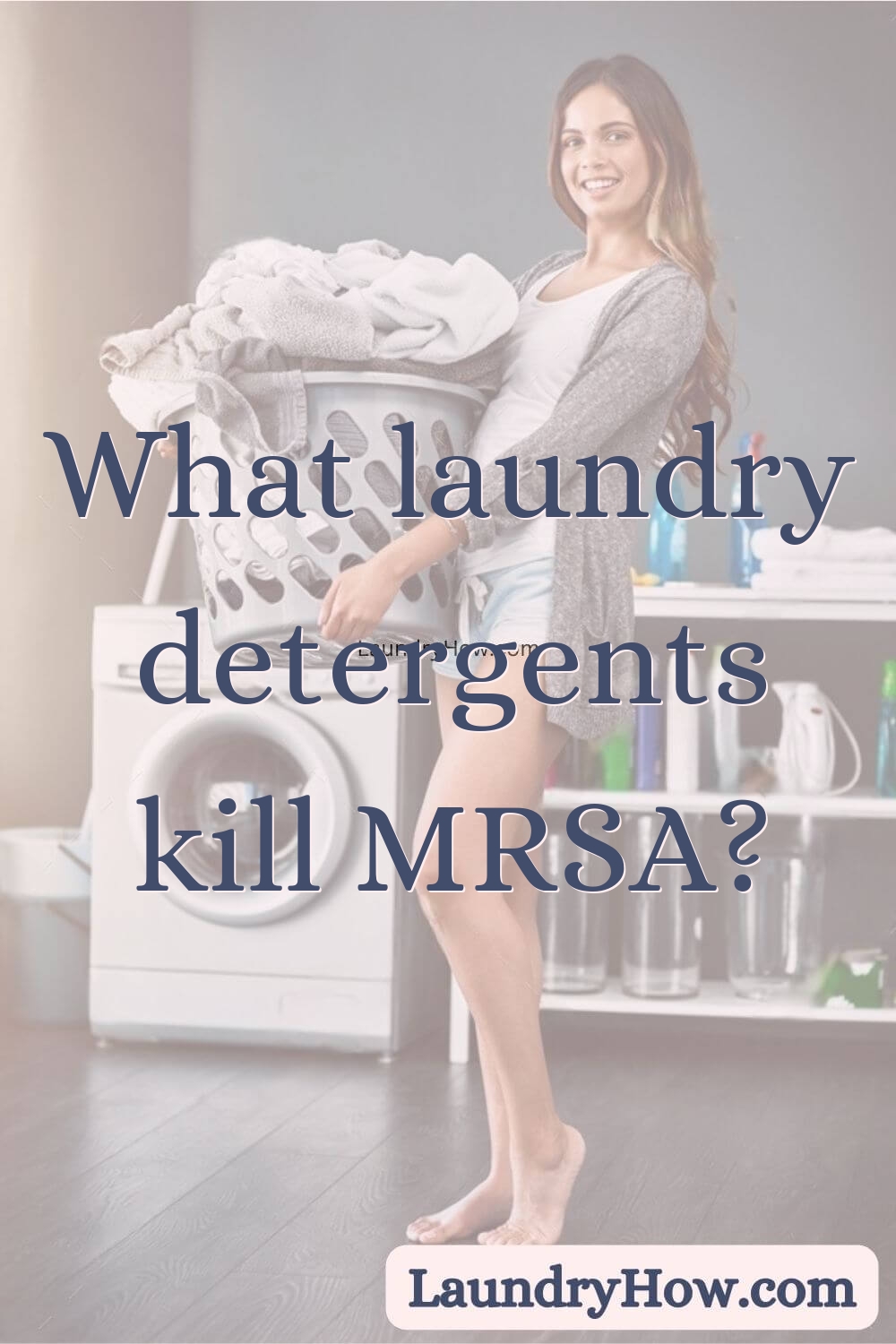Methicillin-resistant Staphylococcus aureus (MRSA) is a concerning bacteria that is resistant to some common antibiotics. MRSA can live on clothing and linens and get transmitted to people, causing difficult-to-treat infections.
The good news is that several common laundry detergents have been found effective at killing MRSA during the wash cycle. With proper laundering techniques, you can help prevent the spread of this bacteria in your home or facility.
Bleach and Oxygen Cleaners
Household bleach has been shown in multiple studies to reliably kill MRSA and other pathogens after 30 minutes of contact time. Look for laundry detergents containing sodium hypochlorite, the active ingredient in bleach.
Some newer laundry sanitizers use hydrogen peroxide or other oxygen-based formulas that can also effectively wipe out MRSA with sufficient exposure. Check product specifications before purchasing an oxygen cleaner if you need MRSA disinfection capabilities.
Quaternary Ammonium Compounds
Several mainstream laundry products incorporate quaternary ammonium compounds (commonly abbreviated as “quats”). At the right concentrations, quats have demonstrated strong efficacy at eliminating MRSA, particularly during the warmed wash cycle when membranes are disrupted.
You’ll need to review technical specifications and brand testing data to ensure any quat-based detergent kills MRSA under real-world home laundry conditions. But quats show great promise for managing this risk without using bleach.
Follow Proper Laundry Procedures
To fully mitigate MRSA contamination on laundry with an effective detergent, proper protocols need to be followed:
- Wear gloves when handling contaminated linens
- Wash with detergent on hottest setting items can withstand
- Use longest wash cycle to maximize contact time
- Dry completely at highest tolerated temperature
- Avoid cross-contamination of clean laundry
Following CDC guidelines, most facilities affected by MRSA adhere to a strict laundering process involving effective detergents and disinfectants under conditions that optimize bacteria elimination.
The above detergent active ingredients show the most bactericidal capabilities for household or institutional laundry exposed to this concerning pathogen. Carefully review available brand specifications and protocol requirements when selecting an MRSA-fighting detergent for your unique needs. Reach out to a microbiologist or infection control expert for specific recommendations if unsure what product fits your situation.
With diligent laundering hygiene using an appropriate detergent, the risk of MRSA transmission via contaminated textiles can be substantially reduced.
References
CDC Guidelines for Disinfection and Sterilization in Healthcare Facilities: https://www.cdc.gov/infectioncontrol/guidelines/disinfection/index.html
Efficacy of Detergents for Decontamination of Clothing Inoculated with MRSA: https://pubmed.ncbi.nlm.nih.gov/34561274/
MRSA Decontamination of Textiles with Detergents and Sanitizers: https://journals.asm.org/doi/10.1128/appliedmicro.72.1.150-155.2016

Laura has had an enthusiasm for laundry ever since she was a teenager experimenting with wash cycles. She went on study textile science in college before working in product testing.
Soon, Laura found friends and family constantly asking her laundry advice, realizing she had become an unofficial laundry guru. The questions kept coming in, so Laura decided to start sharing laundry tips online to help more people. The enthusiastic response led her start the blog “Laundry How”.
Now in her late thirties, Laura uses Laundry How to tackle all kinds of laundry topics – stains, fabric care, detergents, and more. She provides advice from both her studies and experience testing techniques out firsthand. Laura continues to grow an engaged community of laundry learners, feeling fulfilled empowering people to make laundry an easy, confidence-building ritual rather than a dreaded chore.
